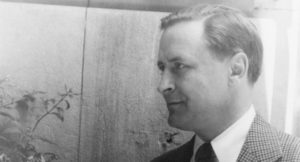 Review of a new biography:
Review of a new biography:
Paradise Lost does not venture far into the territory of the spirit, and its author misses the importance of Catholicism in shaping Fitzgerald’s identity, content simply to lump it with his Irish heritage as something that gave him outsider status in elite circles. In reality, Fitzgerald, who claimed to have left the church in 1917, never escaped its influence. He went out of his way to ensure that the major events of his adult life were recognized by church rituals, including his request for a Catholic burial, which, thanks to his daughter’s persistence, finally occurred thirty-five years after his death. Some of Fitzgerald’s fiction deals specifically with Catholic practices, such as “Absolution,” one of his finest short stories. More importantly, the moral urgency found in his writing bears witness to the faith from which he could never quite escape.